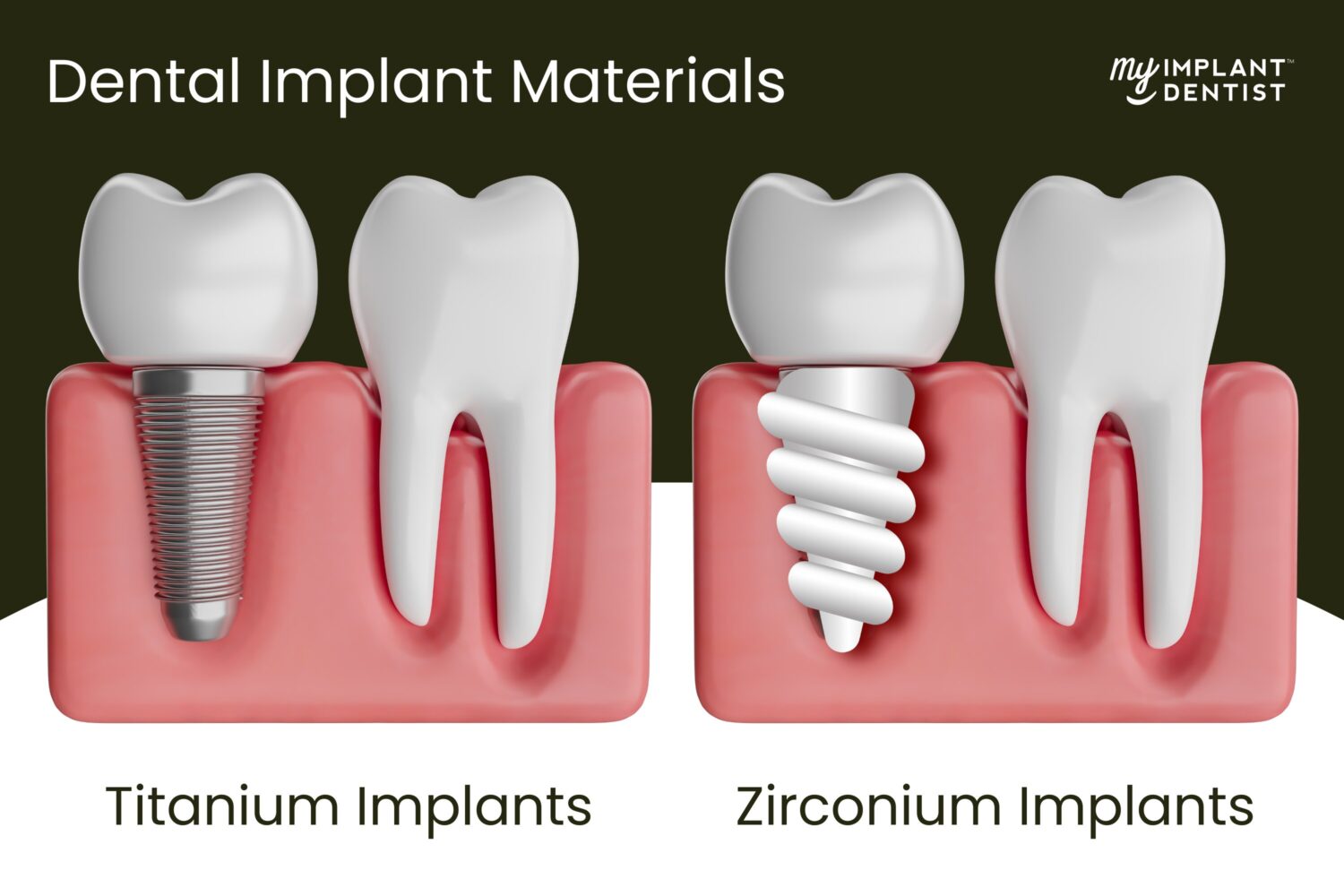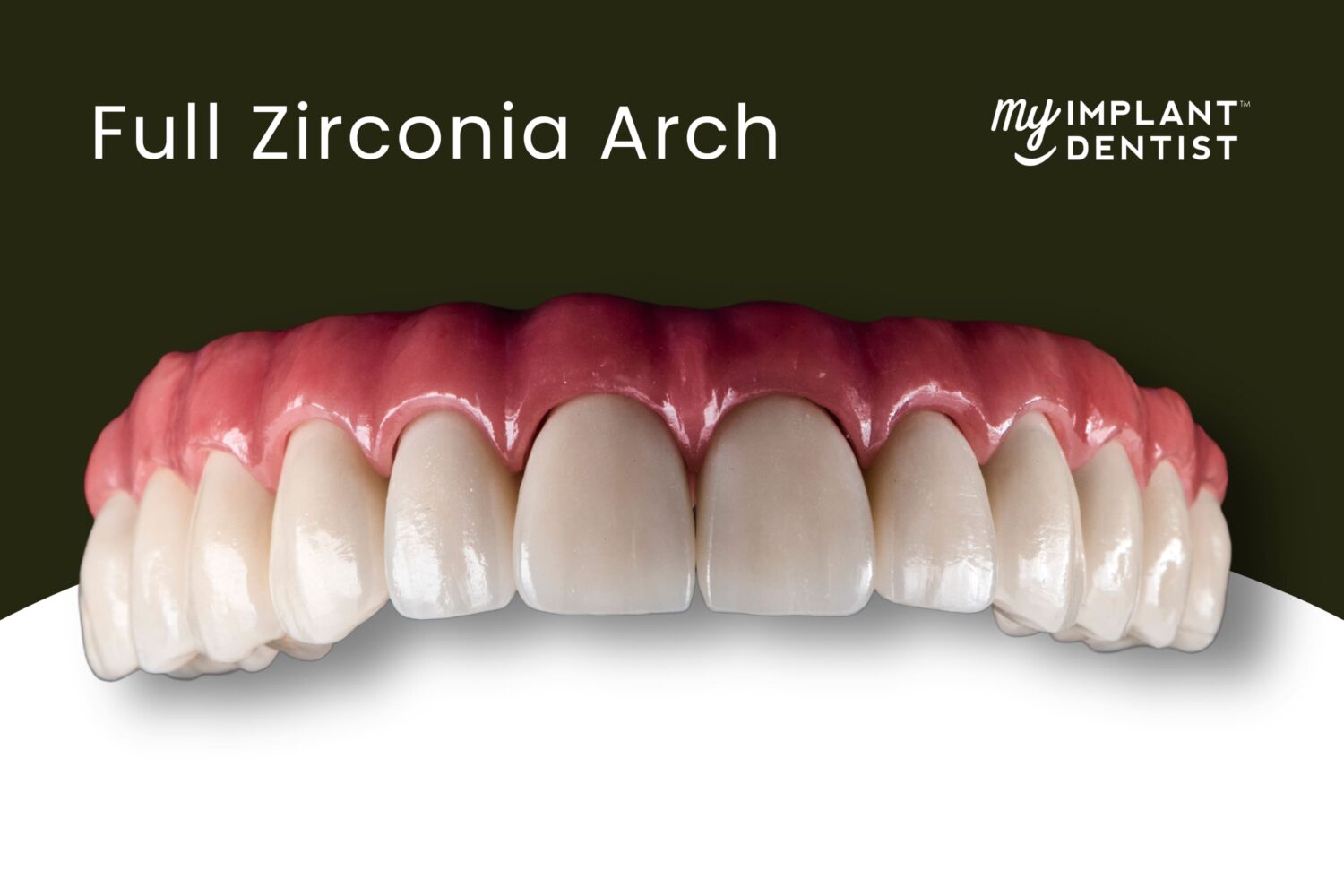Dental Implant Materials
Dental implants have revolutionised the field of dentistry, offering a durable and natural-looking solution for missing teeth. Whether you’ve lost a tooth due to an accident, decay, or age, dental implants offer a long-lasting solution that feels and looks natural. However, not all dental implants are created equal. The material used in your dental implant can make a world of difference in your experience and the implant’s longevity.
In this article, we’ll break down the types of materials, their pros and cons, and everything else that you should know about dental implants in Perth before making a decision.
Contents
Biocompatibility: Why It Matters in Dental Implant Materials
When it comes to dental implant materials, your body’s acceptance is crucial. Both titanium and zirconium are generally considered biocompatible, meaning they’re well-tolerated and have a low risk of causing an allergic reaction or being rejected by the body.
One of the reasons for both titanium and zirconium being biocompatible is their high corrosion resistance. This means that implants made from these materials will likely not break down or give off any metals or alloys.
Mechanical Properties
The mechanical properties of dental implant materials such as tensile strength, elasticity and fracture resistance are vital for long-term success as well as dental implant longevity. Other factors to consider include:
- compressive strength, for stability
- ductility, for producing and sculpting the implant components without losing the material’s inherent strength
- hardness and toughness, which affect implant wear and tear while averting implant fracture
- surface tension, surface energy and surface roughness, which all influence the success of osseointegration.
Titanium Implants
Titanium is the most commonly used dental implant material and has been the gold standard for decades. Its popularity stems from its excellent mechanical properties, including high tensile strength and fracture resistance. Moreover, titanium is known for its high success rates (98%) and high degree of biocompatibility, making it a reliable choice for long-term dental solutions.
Titanium is used to produce the implant post or anchor (the artificial tooth root), as well as the abutment, and if you’re getting a full arch replacement, titanium is also used for the support bar in the bridge. At My Implant Dentist, our implant components are constructed with high-grade medical titanium anodised with gold, which makes the titanium even more resistant to wear and tear.
High-grade or commercially pure titanium is actually an alloy, made up of 90% titanium, 6% aluminium (to decrease the weight), and 4% vanadium (to improve hardness). It is also common practice to use titanium and gold together with zirconium for abutments, as these are above the gum line, and zirconium is more aesthetically pleasing.
Zirconium Implants
Zirconium is a glass-based (ceramic) material with astonishing strength. It is a relatively new material in the field of dental implant materials, but zirconia is gaining acclaim due to its aesthetic advantages and use in patients who are allergic to titanium. Zirconium implants have also become more popular due to the ability of certain bacterial infections to break down or corrode titanium alloy implants.
Unlike titanium, zirconium dental implants are white, making them more natural-looking and appealing for front teeth replacements. However, it’s essential to note that zirconium may be more prone to fractures, a lot more expensive than titanium, and may not be suitable for every implant.
Zirconium is unique in that it can be manufactured as both exceptionally strong and soft at the same time – this is essential, as the dental prosthesis should not wear down your other, opposing teeth. Indeed, zirconium has various levels of strength and “aggressiveness”, so it’s important to note that affordable versions of zirconium dental products are dense and can be aggressive against opposing teeth, resulting in unnecessary and avoidable abrasion.
Full zirconium arch
Interestingly, zirconium can be used to create an entire arch of artificial teeth. This is possible because a single “block” of zirconium (aka, monolithic zirconium) can be produced with layers of varying strengths, which assist in more natural bite force distribution. For example, the zirconium “block” can be deliberately manufactured as stronger where the titanium bar is placed in the bridge, but softer where the crown meets the gums.
These implants are often described as metal-free, even though zirconium arches would still use a titanium bar. However, to improve security and quality even further, the bar can be locked in place with an extra coating of zirconia – providing you with additional aesthetic appeal. Notably, this option is beyond most patients’ budgets, but a great alternative to titanium if you can afford it.
Acrylic
This is an affordable option for implants and dental prosthetics and has been used for numerous years. However, being the traditional option does not mean it’s the best option. Acrylic implants, usually constructed from a resin, polymethyl methacrylate (PMMA), are not as long-lasting as zirconia, and acrylic is not suitable for individuals prone to grinding. Because it’s a softer material, and easily affected by wear and abrasions, grinding your teeth on or with acrylic implants will damage your prosthetics very quickly.
According to the European Denture Center, acrylic dentures have microscopic indentations, which can be the perfect breeding ground for bacteria. On the other hand, porcelain has a very hard, smooth surface that does not foster bacterial growth. Strict, daily oral hygiene can prevent bacterial growth; however, not taking proper care of acrylic prosthetics can result in bad breath and various other complications.
Porcelain
Like acrylic, porcelain has been used for dental implants and dental crowns for many years. Porcelain is longer lasting and harder than acrylic, however, porcelain does break and/or crack more often than acrylic, and may put increased pressure on the jaw bone and gums. For crowns, it is often fused to a metal foundation for what is usually referred to as porcelain-fused-to-metal (PFM) crowns. Porcelain or PFM is a good option as the metal foundation provides structural stability and strength, while the porcelain provides an aesthetically sound artificial tooth.
Always Ask Your Dentist
Implant dentistry and the materials used are ever-evolving, and it’s an exciting time for both practitioners and patients as new materials and technologies continue to improve the quality of dental healthcare and oral health.
Choosing the right material for your dental implant is a big decision, and it’s one you shouldn’t take lightly. Whether you’re leaning towards the tried-and-true titanium dental implants or considering the newer zirconia, it’s crucial to consult with qualified dental professionals.
At My Implant Dentist, we’re committed to helping you make the best choice for your unique needs. So why wait? Schedule a consultation today and take the first step towards a brighter, healthier smile on (08) 9361 5544 or send a message.



